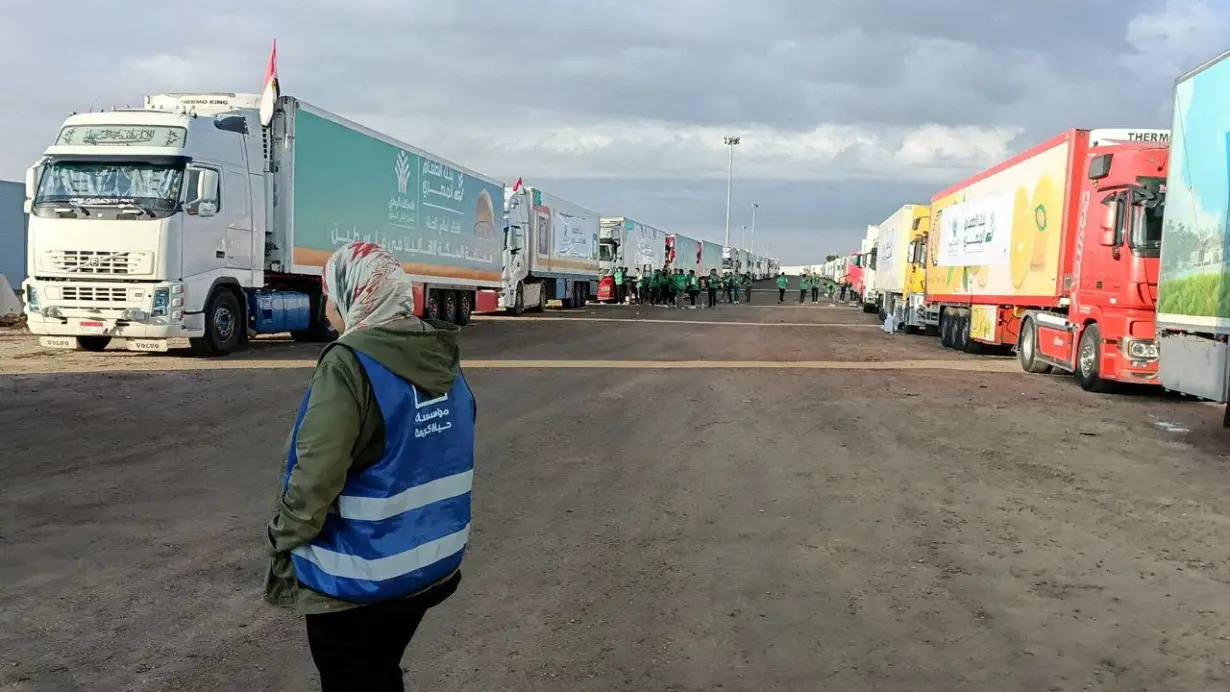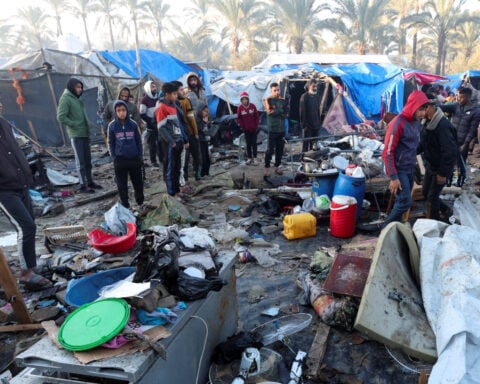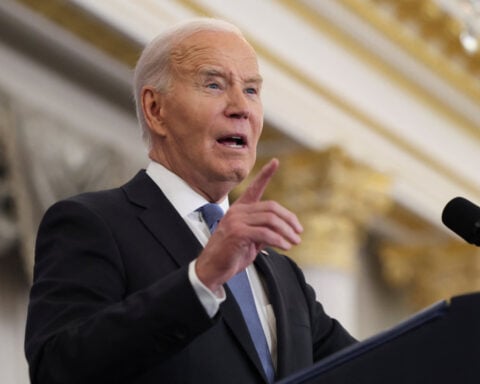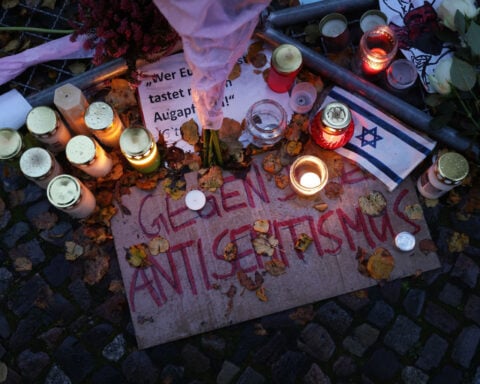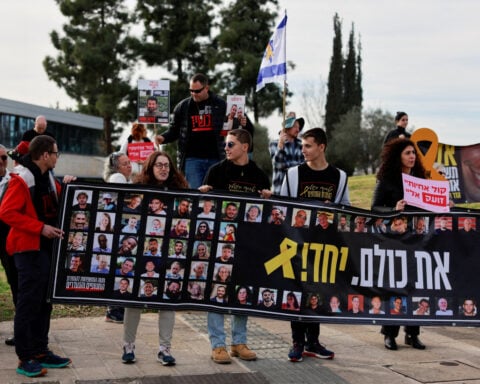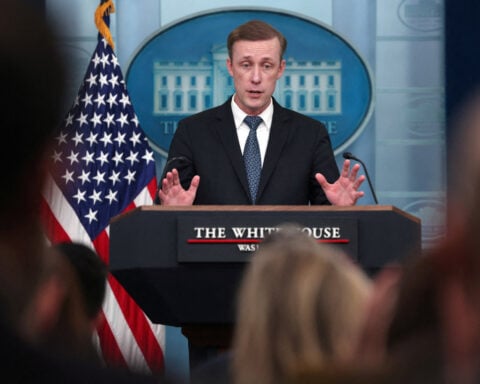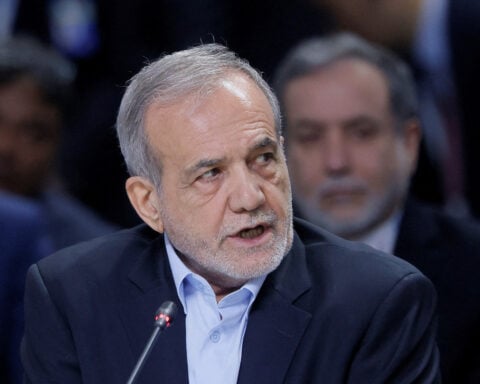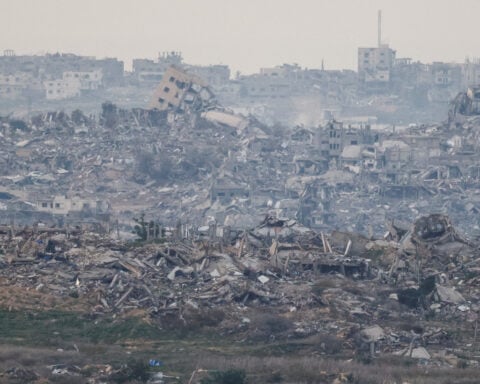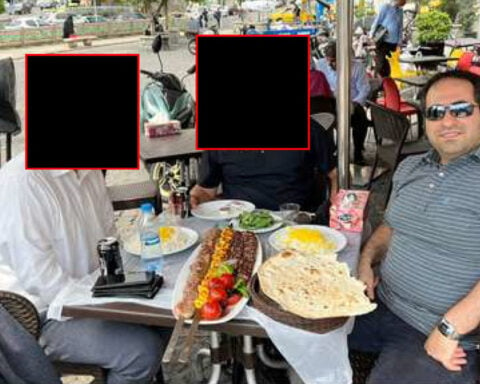CAIRO (Reuters) - Machinery to repair roads has been sent through the Rafah border crossing from Egypt into the Gaza Strip in preparation for the delivery of some of the aid stockpiled in Egypt's Sinai Peninsula, two security sources said on Thursday.
Rafah is the only crossing not controlled by Israel but has been out of operation since the first days of the conflict in Gaza following Israeli bombardments on the Palestinian side of the border.
The United States and Egypt have been pushing for a deal with Israel to get aid delivered to Gaza, and the White House said on Wednesday that it had been agreed for up to 20 trucks to pass through, with hopes for more trucks later.
Most of Gaza's 2.3 million residents depended on aid before the current conflict started on Oct. 7, about 100 trucks daily were providing humanitarian relief to the enclave, according to the United Nations.
More than 100 trucks were waiting close to the crossing on the Egyptian side on Thursday, though it was not expected that aid would enter before Friday, Egyptian security sources said. More aid is being held in the Egyptian city of Al Arish, about 45 km (28 miles) from Rafah.
Western governments have been negotiating for the evacuation of foreign passport holders from Gaza, something Egyptian officials have conditioned on aid getting in. Details of potential evacuations are unclear.
On Wednesday, after talks with U.S. President Joe Biden, Israeli Prime Minister Benjamin Netanyahu's office said Israel would not block aid for civilians entering Gaza from Egypt, as long as those supplies do not reach Hamas.
It said it would continue a blockade of humanitarian aid from Israel into Gaza until hostages held by Hamas were returned.
Israel's bombardment and siege of Gaza is in retaliation for a devastating Hamas incursion into Israel on Oct. 7 during which 1,400 people were killed and hostages were taken.
Israel and Egypt have upheld a blockade of Gaza since Hamas took control of the territory in 2007, tightly controlling the movement goods and people.
(Reporting by Yusri Mohamed and Mohamed Ahmed Hassan; Writing by Aidan Lewis; Editing by Janet Lawrence)

 TikTok seeks to reassure U.S. employees ahead of Jan. 19 ban deadline
TikTok seeks to reassure U.S. employees ahead of Jan. 19 ban deadline
 US won't seek charges in unarmed Black motorist Ronald Greene's fatal 2019 arrest
US won't seek charges in unarmed Black motorist Ronald Greene's fatal 2019 arrest
 Euro zone households could increase consumption, ECB chief economist says
Euro zone households could increase consumption, ECB chief economist says
 Foreigners sold South Korean equities last month by most since early 2020
Foreigners sold South Korean equities last month by most since early 2020
 Trump and Biden national and homeland security staff will meet Wednesday for threat exercises
Trump and Biden national and homeland security staff will meet Wednesday for threat exercises
 As fires ravage Los Angeles, Tiger Woods isn't sure what will happen with Riviera tournament
As fires ravage Los Angeles, Tiger Woods isn't sure what will happen with Riviera tournament
 Antetokounmpo gets 50th career triple-double as Bucks win 130-115 to end Kings' 7-game win streak
Antetokounmpo gets 50th career triple-double as Bucks win 130-115 to end Kings' 7-game win streak
 No 97 Laura Siegemund upsets Olympic champion Zheng Qinwen at the Australian Open
No 97 Laura Siegemund upsets Olympic champion Zheng Qinwen at the Australian Open
